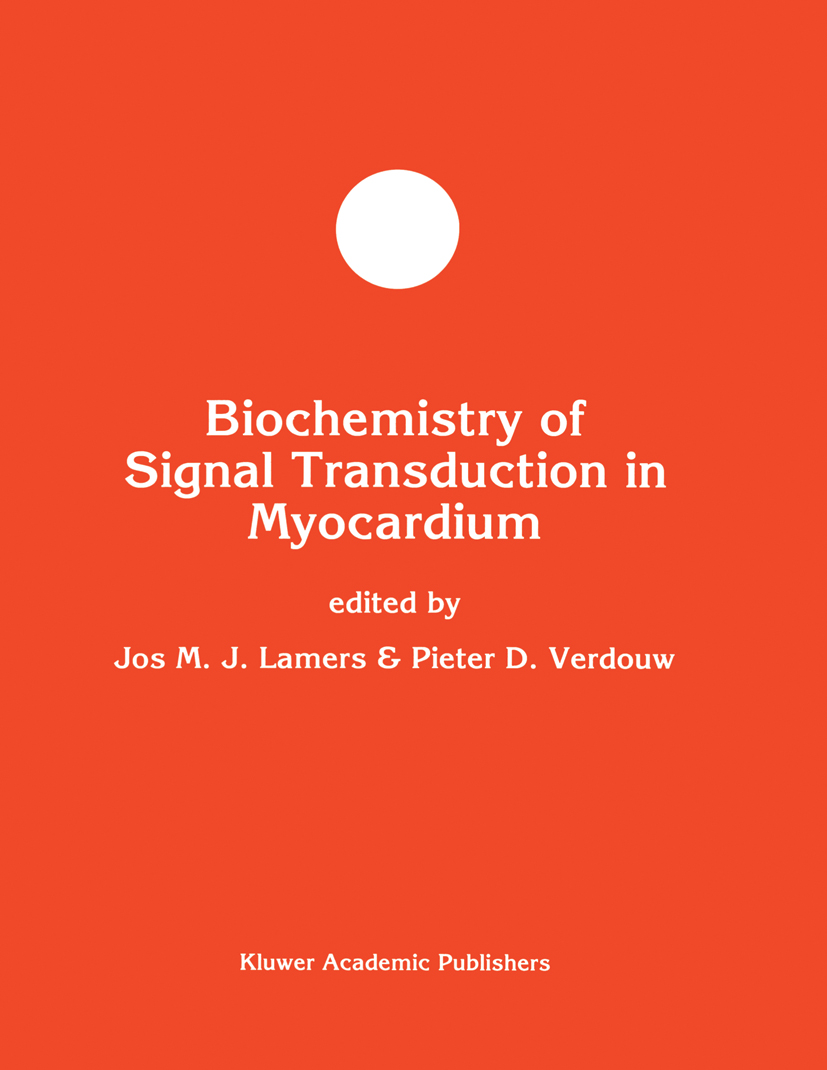Biochemistry of Signal Transduction in Myocardium
Biochemistry of Signal Transduction in Myocardium
The chapters in this volume are the Proceedings of the Satellite Symposium of the XVIth World Congress of the International Society for Heart Research on `Signal Transduction in Normal and Diseased Myocardium' which was held in Rotterdam at the Facul...
Read more
The chapters in this volume are the Proceedings of the Satellite Symposium of the XVIth World Congress of the International Society for Heart Research on `Signal Transduction in Normal and Diseased Myocardium' which was held in Rotterdam at the Faculty of Medicine & Health Sciences of the Erasmus University, June 30 and July 1, 1995. Diverse and distinct auto-, para-, and endocrine stimuli arriving at the surface of endothelium, smooth muscle cells, cardiomyocytes and fibroblasts within the myocardium, engage cell type-specific receptors, which lead to transmission of signals across the cell plasma membrane and result in the production and activation of second messengers. The most common mechanism by which these second messengers function is via direct or indirect activation of specific protein kinases. The current challenge for scientists is to identify the specific substrates (e.g. metabolic enzymes, Ca2 +-regulating proteins, transcription and mitotic factors) for the many protein kinases, to elucidate the biological significance of the cell type-specific expression heterogeneity of signalling proteins (e.g. membrane receptors, isoenzymes of protein kinase C, G-proteins) and to unravel the cross-talk interaction between the signalling systems (e.g. phospholipase C with adenylate cyclase and phospholipase C with phospholipase D). The multiplicity of receptor types, G-proteins, effector proteins, second messengers and protein kinases, their substrate proteins and the `cross-talk' interactions in the myocardium raises fundamental questions about the mechanisms that ensure the precision and timing of the myocardial responses to hormonal and pharmacological stimuli. This book provides an up-to-date source of information for all scientists and clinicians interested in the mechanisms by which external signals are transmitted to the interior and regulation of a variety of physiological, pathological and pharmacological responses.
Less
